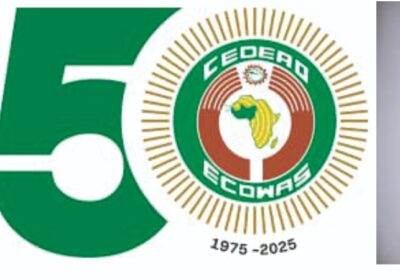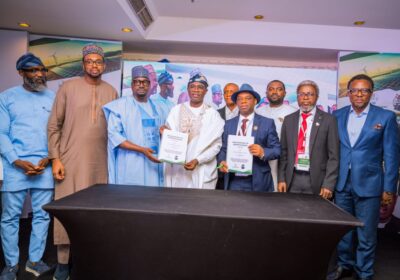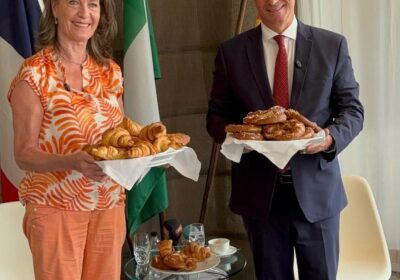Golden Jubilee ,Cabo Verde Celebrates 50 Years of Independence with UN Deputy S-G Amina Mohammed Honoring the Nation’s Global Role.
By Raymond Enoch.
In a landmark moment of national pride, Cabo Verde has marked its 50th anniversary of independence with a sweeping series of celebrations, highlighting a half-century of resilience, democratic consolidation, and forward-looking ambition.
The July 5 festivities—dubbed the Golden Jubilee of Freedom—were headlined by a solemn national ceremony in the National Assembly, presided over by President José Maria Neves, and honored internationally by the participation of UN Deputy Secretary-General Amina J. Mohammed.

In her keynote remarks during a dedicated United Nations tribute, Deputy Secretary-General Mohammed lauded Cabo Verde’s remarkable transformation from colonial rule to a globally respected democracy. She cited the nation’s leadership in climate action, blue economy innovation, and regional cooperation as models for the continent and beyond. “Cabo Verde’s journey is a story of hope, resilience, and leadership. From the struggle for sovereignty to standing as a beacon of climate and digital innovation, the world has much to learn from your progress,” she said.
The formal sessions were held in the capital’s Assembly Hall, where dignitaries reflected on major gains since 1975: democratic governance, rising educational access, and economic diversification. A grand military parade in Praia underscored the solemnity and unity of the moment, celebrating national achievements while projecting a shared commitment to future development.
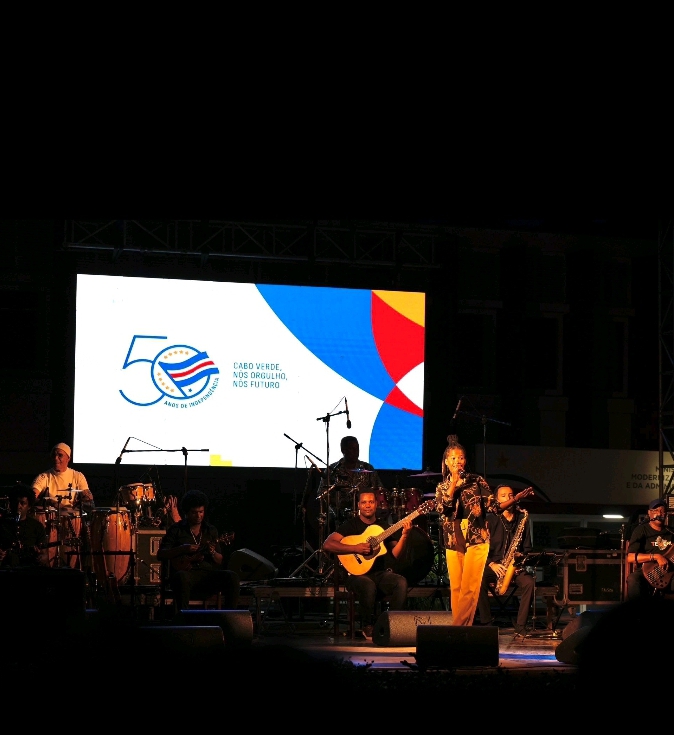
The eight-month celebration, organized under the theme “Memory & Identity, Development & Achievement, Future & Innovation,” has unfolded across all islands. São Vicente launched the festivities in April with youth-centric events, including civic clean-up campaigns and cultural tributes hosted by the Industrial & Commercial School. Praia, the capital, held the centerpiece July 5 celebrations, complete with unity parades, honors ceremonies, and large-scale public gatherings. The culmination of the national observance is scheduled for December in Espargos, on Sal island, where a final ceremony will draw the Golden Jubilee to a close.
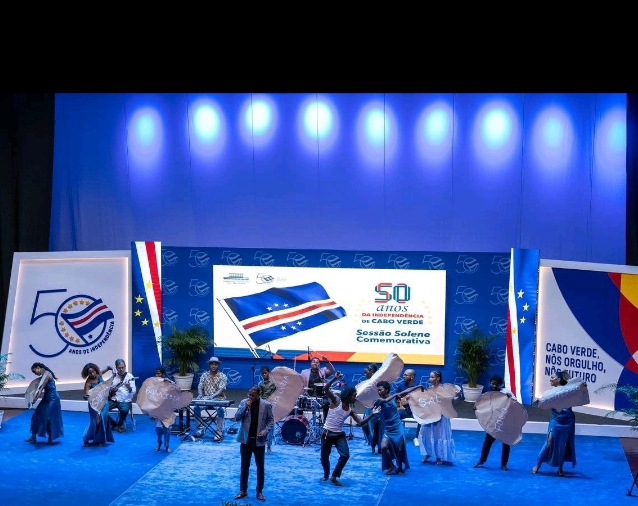
One of the most enduring legacy projects of the Jubilee is a new digital platform launched by NOSI, aimed at engaging citizens—especially youth—in co-creating the future. The platform enables users to access national archives, share personal stories, and contribute ideas for upcoming programs. “We want to hear what young people think about the past 50 years—and what the next 50 should look like,” said António Lopes da Silva, Executive Secretary of the National Organizing Committee.
Cabo Verde’s development story since 1975 is underscored by impressive statistics. Secondary education is now universally accessible, and illiteracy has dropped from over 65 percent at independence to just 3 percent today. The healthcare system has expanded from only two hospitals and a dozen doctors in the post-independence years to a full-scale infrastructure across all islands, offering comprehensive care to the population.
Further underscoring its upward trajectory, Cabo Verde recently received an upgrade from the World Bank to upper-middle-income status, fueled by a 7.3 percent GDP growth in 2024. The robust economic performance was largely driven by a resurgence in tourism and improved macroeconomic stability, both of which continue to strengthen the country’s international standing and investment appeal.
The Jubilee celebrations also had strong regional and global dimensions. ECOWAS hosted a symbolic kickoff in Praia, affirming Cabo Verde’s leadership in regional priorities such as maritime security, sustainable energy, and youth-driven development. Portugal and the United Nations used the occasion to reiterate their strategic partnerships with the archipelago, particularly in the areas of climate resilience and digital innovation.
Still, the nationwide jubilation did not go without criticism. In São Vicente, opposition figures voiced concern over the omission of key independence-era veterans and the absence of references to revolutionary leader Amílcar Cabral. Some labeled the oversight “a national shame,” accusing the government of whitewashing foundational moments of the liberation struggle. In contrast, MpD Secretary-General Agostinho Lopes urged that future celebrations extend further into rural areas to “reconnect the state with the people” and make the independence legacy more tangible to ordinary citizens.
President Neves used the Jubilee to map out the nation’s strategic direction for the next 50 years. His forward-looking agenda includes economic diversification, expanded infrastructure, social inclusion, and deeper diaspora engagement. He also emphasized the importance of continued leadership in renewable energy, climate policy, and digital transformation as central to Cabo Verde’s global contribution and internal progress.
As Cabo Verde stands on the threshold of a new era, the Golden Jubilee of Freedom has unified its people in both memory and imagination. With a legacy of democratic strength and a renewed vision for innovation and sustainability, the island nation has turned its 50th year into a powerful moment of orgulho—pride—not only in what has been accomplished, but in what lies ahead. The story of independence, once a dream, is now a lived reality—owned by every Cabo-Verdiano, on the islands and across the global diaspora.





